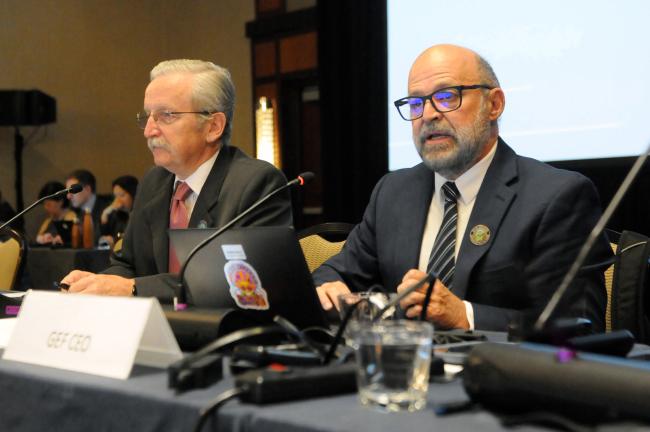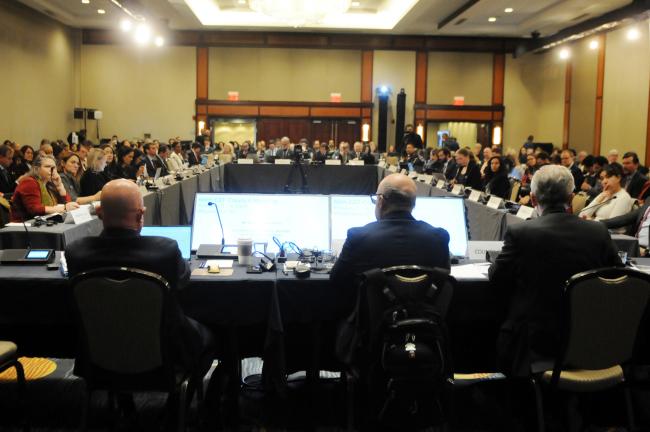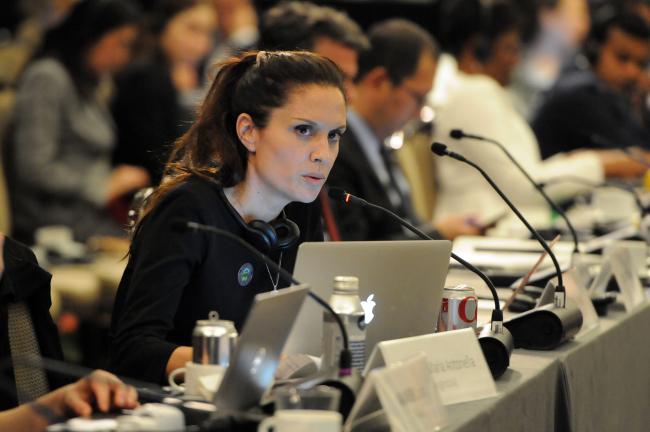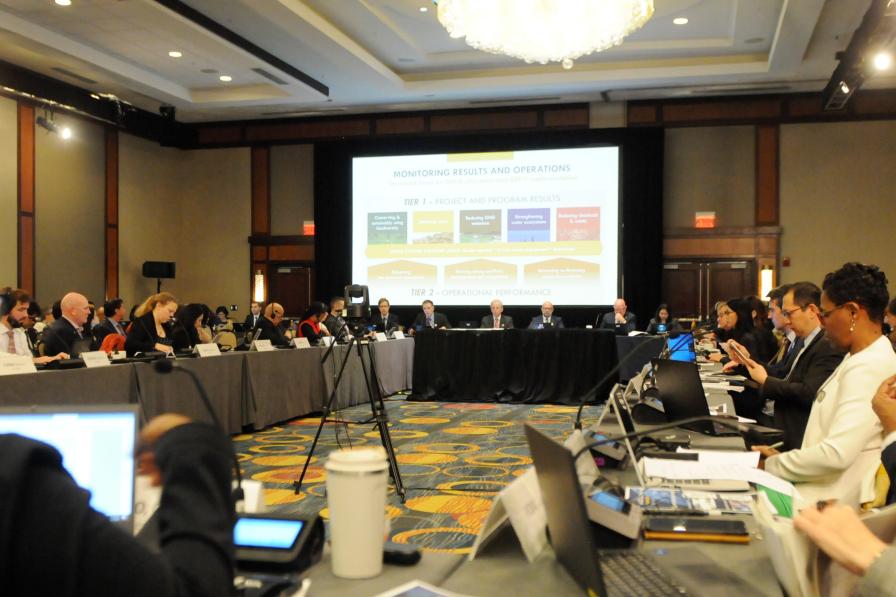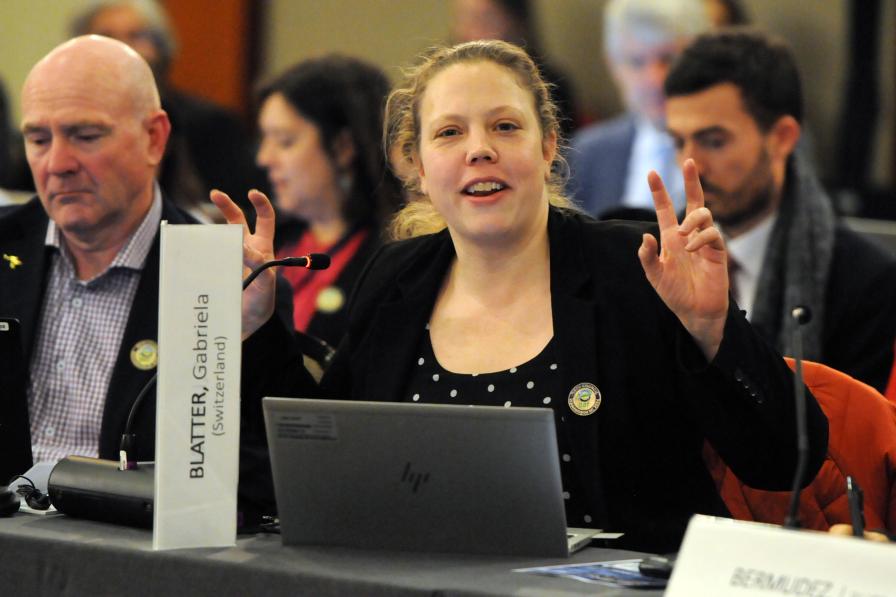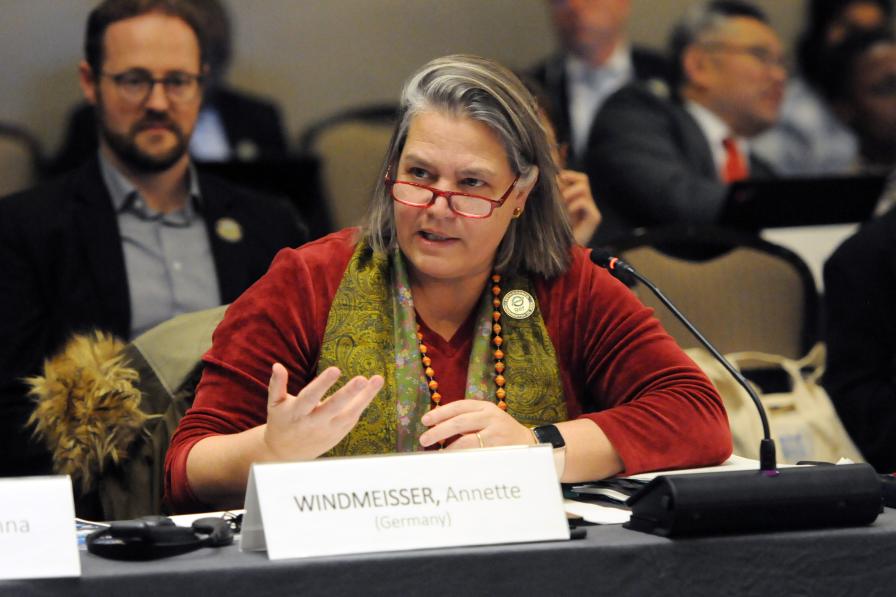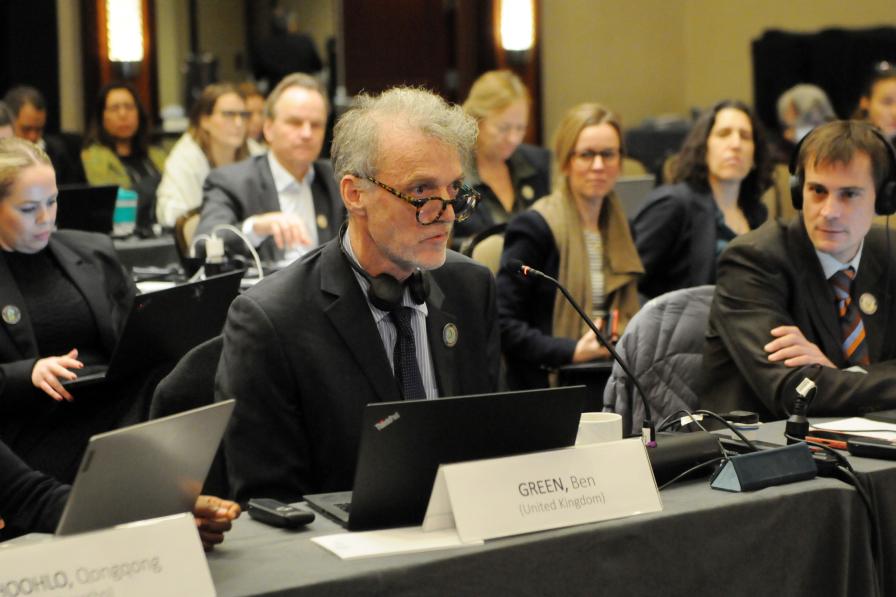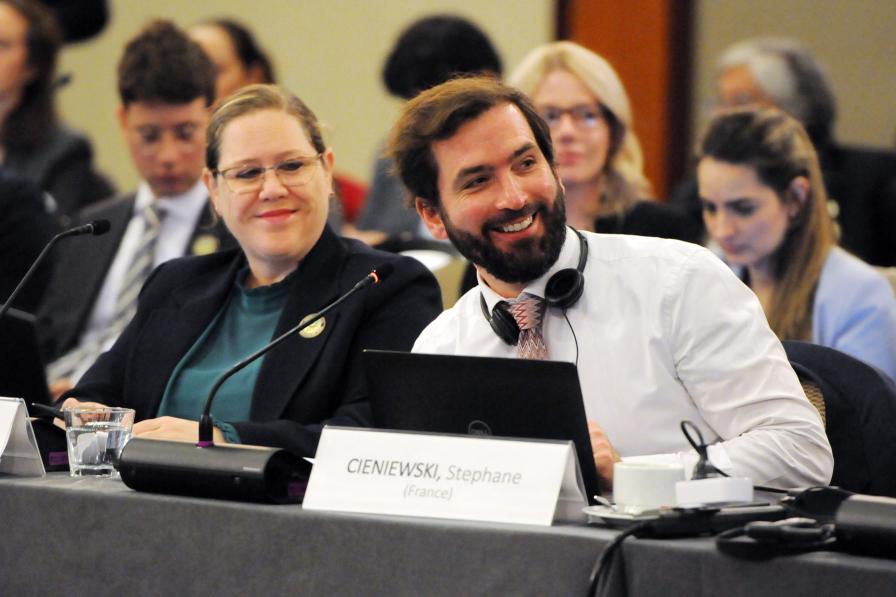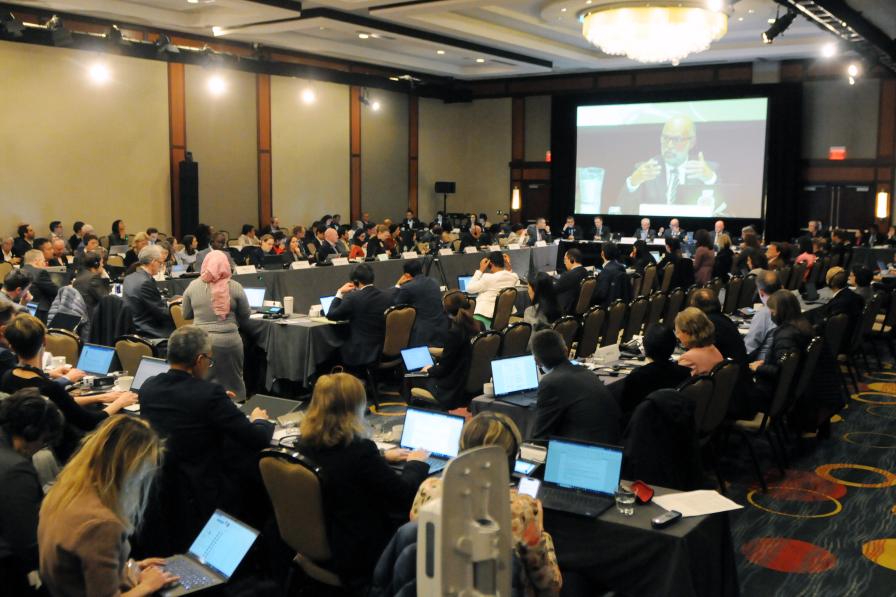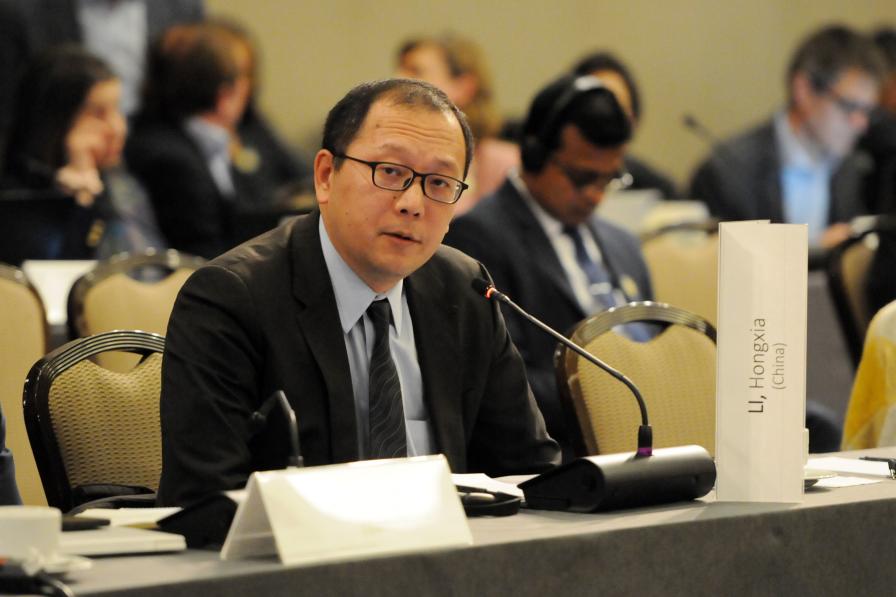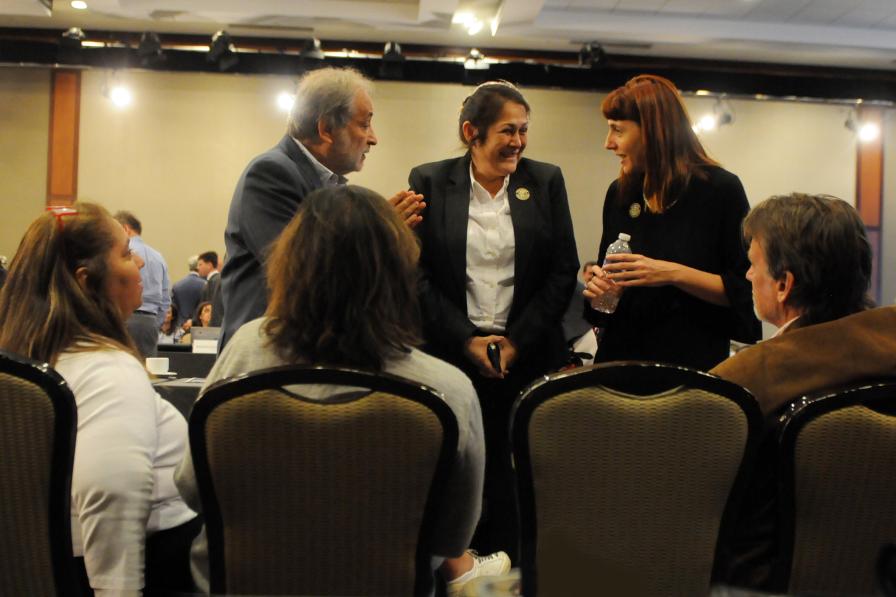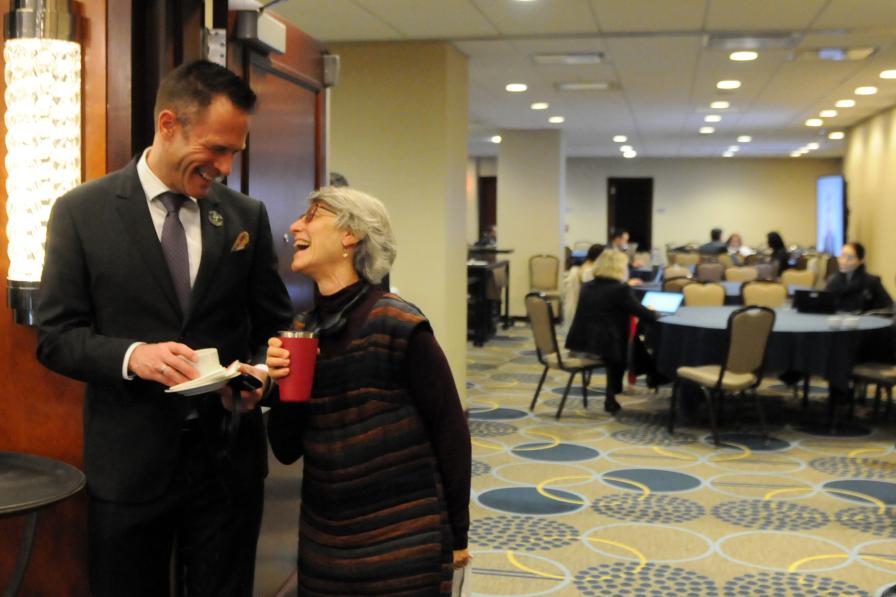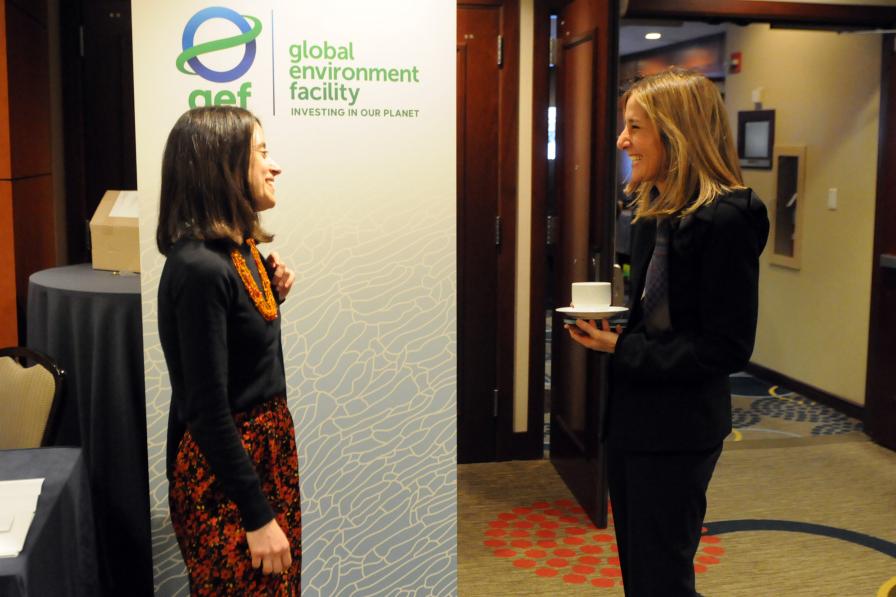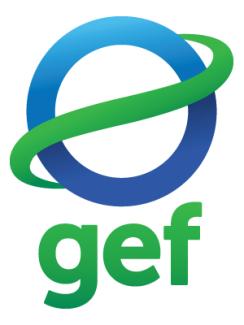On its opening day, the 66th meeting of the Global Environment Facility (GEF) Council approved the second largest Work Program in GEF history. The Council also considered ways to streamline the GEF project cycle, discussed tracking and measuring socioeconomic co-benefits from GEF investments, and reviewed and welcomed the GEF Monitoring Report 2023.
In his opening remarks, GEF CEO and Council Co-Chair Carlos Manuel Rodríguez told the Council that the triple planetary crises require a better GEF, bringing more resources, enhancing access, streamlining its policies and procedures, managing higher risks, generating more investment around policy coherence, and catalyzing the mobilization of financial resources from all sources. This means, he said, that the GEF and its Partnership, must evolve.
The Work Program approved by the Council totals USD 916.1 million, including Agency fees. With its approval, programming under the Eighth Replenishment of the GEF Trust Fund (GEF-8) has reached nearly 50% of the GEF-8 funds, only 38% through the replenishment timeline. It comprises 45 projects and programs covering all GEF thematic focal areas, six with a global focus; eight with a regional focus; and 32 with a national focus. Among the 77 recipient countries, 22 are least developed countries, and 14 small island developing states.
On streamlining the GEF project cycle, the Council considered Secretariat proposals on changes to GEF policy, guidelines, and practices to be made during this meeting and others to be deliberated at the 67th meeting of the Council. The principal change proposed was to raise the cap for Medium-Sized Projects from USD 2 million to USD 5 million. The Council agreed to return to the decision on this issue on Tuesday morning after revising the draft decision text to take into account Council Member suggestions.
On measuring socioeconomic co-benefits, the Council agreed to Secretariat proposals on next steps, including:
- identifying a small number of standard indicators;
- assessing the feasibility of relying on alternative measurement practices, such as geospatial analyses linked to population data;
- better capturing and monitoring the results of GEF financing for Indigenous Peoples and local communities, civil society, and youth, through the development of new indicators; and
- taking steps to ensure an appropriate consideration of socioeconomic co-benefits during the design stage.
As for the Monitoring Report 2023, it indicated:
- significant results across five environmental areas;
- Agencies reached first disbursements in countries with speed and reached an overall higher disbursement ratio, while rating implementation progress in the satisfactory range for over four out of five projects;
- financial closure was reached on time for a higher share of the portfolio than a year ago; but
- delays in submitting Mid-Term Reviews (MTRs) remain, and there has been modest progress in materializing co-financing.
While Council Members welcomed the report, they raised questions and indicated concerns about the indicators on co-financing and delays in MTRs and terminal evaluations. They also asked for greater clarity about whether first disbursements are actually significant. The GEF Civil Society Organization (CSO) Network called for more analysis in future reports of CSO engagement in GEF work.
To receive free coverage of global environmental events delivered to your inbox, subscribe to the ENB Update newsletter.
All ENB photos are free to use with attribution. For the 66th Meeting of the GEF Council, please use: Photo by IISD/ENB | Diego Noguera

